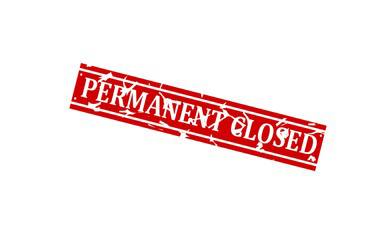Loss is inevitable! Relationships, family, friends and jobs; we love ‘em and we lose ‘em! Truly, loss is hard, sad, disruptive, and you can’t help but be affected in some way. Each loss is different and individual, but when someone or something means a great deal to you, their absence from your life is palpable.
When it comes to the loss of a job, one can feel subjected to multiple losses. It’s not just the end of that work you really loved and/or held for many years. It is the loss of the relationships you built on that job. The structure of your day will change (hopefully only temporarily!). Support systems, information, tools and more will disappear. You could find yourself missing the infectious laughter of a coworker, the smells and tastes of that awesome food truck parked outside, the feelings of belonging, the comradery, your identify, and sense of accomplishment both individually and as part of a team.
Or, maybe you won’t miss a thing about the job; particularly the commute, the annoyingly inappropriate laughter or comments of a coworker, the noise and smells of the construction site next door to your office, or that really obnoxious department head.
You can’t always be prepared for the loss of a job. There may be little notice, few warning signs or clues to signal it’s time to update your resume and start networking for that next position. If you are unprepared for the loss of a good job, it will seriously effect what happens next in your life. But you also can’t effectively function by waiting around for the axe to fall if you have no reason to think that it will.
Unexpected job loss – regardless of the reason – often brings on a variety of feelings of anxiety, anger and frustration. These are attributes you don’t want to reveal to a prospective employer as you search for your next job. Knowing and understanding your particular loss can mean the difference between finding your next position relatively quickly or not! Answer these questions to help you assess your situation:
- Were you the only employee that was fired, or were many people terminated at the same time?
- If many were let go at the same time, were they all from one department, or from throughout the company?
- Were you dismissed for cause, lack of compliance or not meeting expected or agreed upon goals or benchmarks?
- Was your contract not renewed?
- Was the company shuttered?
The answers to these and other questions will help you better understand the “why” of your job loss. If you weren’t the only one to lose your job, meet with others who lost their jobs at the same time and help each other work through the sense of loss and anger. Take advantage of this concentrated opportunity for networking, exchanging leads, ideas and information, and helping each other to move forward.
Do you know people at competitive firms from the one that just let you go? If you’ve signed non-compete and/or NDA’s with the company that dismissed you, you might not have the option of approaching competitors for employment. If you do apply with competitors, tread lightly to avoid any possible legal ramifications. And if you work in a tight-knit community of professionals within the same industry, word of your job loss could get around pretty quickly. If your intention is to continue working in that industry, you will need to become adept at answering questions about why you lost that job. Your best answers to these questions will be unemotional, matter-of-fact responses that do not reflect your real anger or negativity about the situation that might tank your efforts.
If you will transfer your skills to another industry, you may be able to steer around the how of why you lost your job, and concentrate on what you can and will do for that next employer. Get comfortable talking about how your skills are transferable and will translate to your next endeavor and succinctly explain their relevance to your new field.
Job loss is hard, but personal loss is harder! The loss of a loved one will also have an effect on your work life. You may think you have a handle on your emotions and believe that going back to work will keep your mind occupied by things other than grief. However, those feelings of loss and sadness can permeate everything else you do and it could be a long time before they go away. Your ability to concentrate and focus on tasks will be shortened, others will see that “something is off” with you even if they are unaware of your loss. Your whole demeanor could be affected. Even minor and insignificant things could set off outwardly noticeable responses that are hugely disproportionate to their cause and may be inappropriate for the workplace.
Grief, in all its forms and causes, must be dealt with in a timely manner. Support groups and counseling can be an important resource to cope and understand your feelings and emotional responses to your losses. There is no calendar, schedule or timeline for healing from loss. So, if you have experienced a major loss, take some time to grieve. Seek help if you need it. Then, in an appropriate amount of time, you’ll be able to move forward with a renewed, clear focus.

